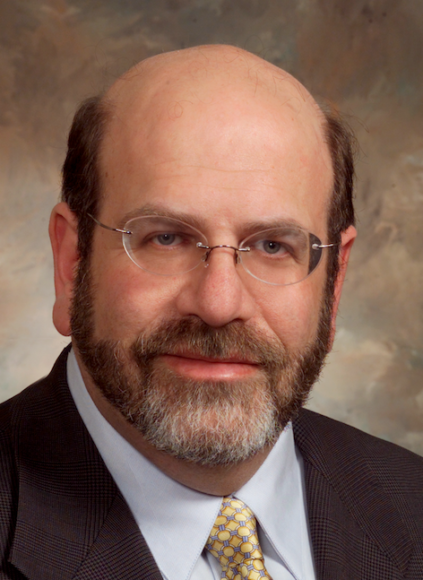Workers’ compensation disability claims based on COVID-19 are already rolling in and thousands more are expected. Here are six approaches to handling these claims:

- Act based on “gut reaction.” It just seems intuitively “right” to cover nurses and doesn’t feel as natural to cover schoolteachers. But such knee-jerk reactions could be the result of misinformation, biases, news items taken out of context, or other scientifically unsupported prejudices. A nurse engaged exclusively in medical record review may have less exposure than a teacher in a school system that was slow to suspend classes. Blanket decisions based on occupational title may be unfair and inaccurate.
- Act based on the existing state laws covering occupational diseases. However, most such laws require at least some element of proof of exposure, if not proof of causation, which would be awfully tough to determine for coronavirus cases. Some states have particularly stringent OD standards that would practically rule out COVID cases.
- Act based on science. “Evidence-based” decision making seems like a good idea, but other than “junk science,” science takes time. It may be years before there is legitimate, peer-reviewed, credible literature finding, or failing to find, that COVID-19 is related to any specific type of employment.
- Make decisions on a case by case basis. If the goal were to ferret out a disease resulting from an on-the-job exposure versus a case coincidental to or completely unrelated to job exposures, you could create extensive questionnaires and take statements under oath, but after the “data” is collected, you’d probably wind up using one of the other “methods” noted above. For example, if extensive investigation reveals that a person shared a household with two known positive COVID people, and then was called on at work to transport two COVID positive patients to a hospital, which exposure will be deemed the “real” cause?
- Wait for, then follow, new state laws. States will be pressured to enact presumption statutes declaring that the virus is work-related for various categories of employees. Based on political considerations and the strengths of their respective lobbyists, presumption statutes may run in favor of first responders, retail workers, healthcare workers, or other broad occupational groups. Although such presumptions may be well intended, they are often both over and under inclusive. For example, a presumption in favor of firefighters may apply to an arson investigator who likely had little or no potential exposure to the virus on the job, while denying the presumption for a bus driver, who likely had incalculable exposures to people who may have been infected.
- And one final idea – one that makes sense, doesn’t jump the gun on science, and isn’t distorted by preconceived notions – treat all victims of the virus equally, and compensate them all, whether the disease was work-related or not.
Ironically, funding and the mechanism for this sweeping, indiscriminate and logical compensation scheme was passed by Congress in March.
The Coronavirus Aid, Relief, and Economic Security (CARES) Act, signed into law by President Trump on March 27, provides up to 10 days of paid sick leave at two-thirds of regular salary, up to $511 per day. This is much more money than any state workers’ compensation plan pays. The worker needs to prove nothing and gets more money. The employer loses nothing – the act allows the employer to take a 100% credit for benefits paid against its further obligations to pay federal tax employee wages. Problem solved.
If a worker has disability spanning more than 10 days, the act provides for super-enhanced unemployment compensation – even though the worker is sick and unable to work – for up to 16 more weeks, and at rates between $875 and $1,500 per week, depending on the state. Again, much higher than workers’ compensation benefits, and no skin off the employer’s back.
So instead of legislation and court challenges and litigation, why not just give workers more money, and charge the employer less money, by using the existing CARES Act benefits?
One reason is attorneys. When a worker gets sick pay or unemployment, attorneys make no money. If an attorney forces the worker into the workers’ compensation system, the attorney takes a cut.
Another reason could be medical bills, but not really. Under comp, medicals are all paid by the employer. Under sick leave and unemployment, the bills are payable by the workers’ health insurance, which is usually provided and paid for, in whole or in part, by the employer. Typically, it makes little difference to the worker whether the health insurer or comp insurer foots the medical bills, so there’s not much of a reason to force these cases into the comp system.
I hate to give up a potentially lucrative business defending against comp claims, but sometimes common sense should prevail.
Was this article valuable?
Here are more articles you may enjoy.


 Hackers Hit Sensitive Targets in 37 Nations in Spying Plot
Hackers Hit Sensitive Targets in 37 Nations in Spying Plot  China Bans Hidden Car Door Handles in World-First Safety Policy
China Bans Hidden Car Door Handles in World-First Safety Policy  Why 2026 Is The Tipping Point for The Evolving Role of AI in Law and Claims
Why 2026 Is The Tipping Point for The Evolving Role of AI in Law and Claims  LA County Told to Pause $4B in Abuse Payouts as DA Probes Fraud Claims
LA County Told to Pause $4B in Abuse Payouts as DA Probes Fraud Claims 